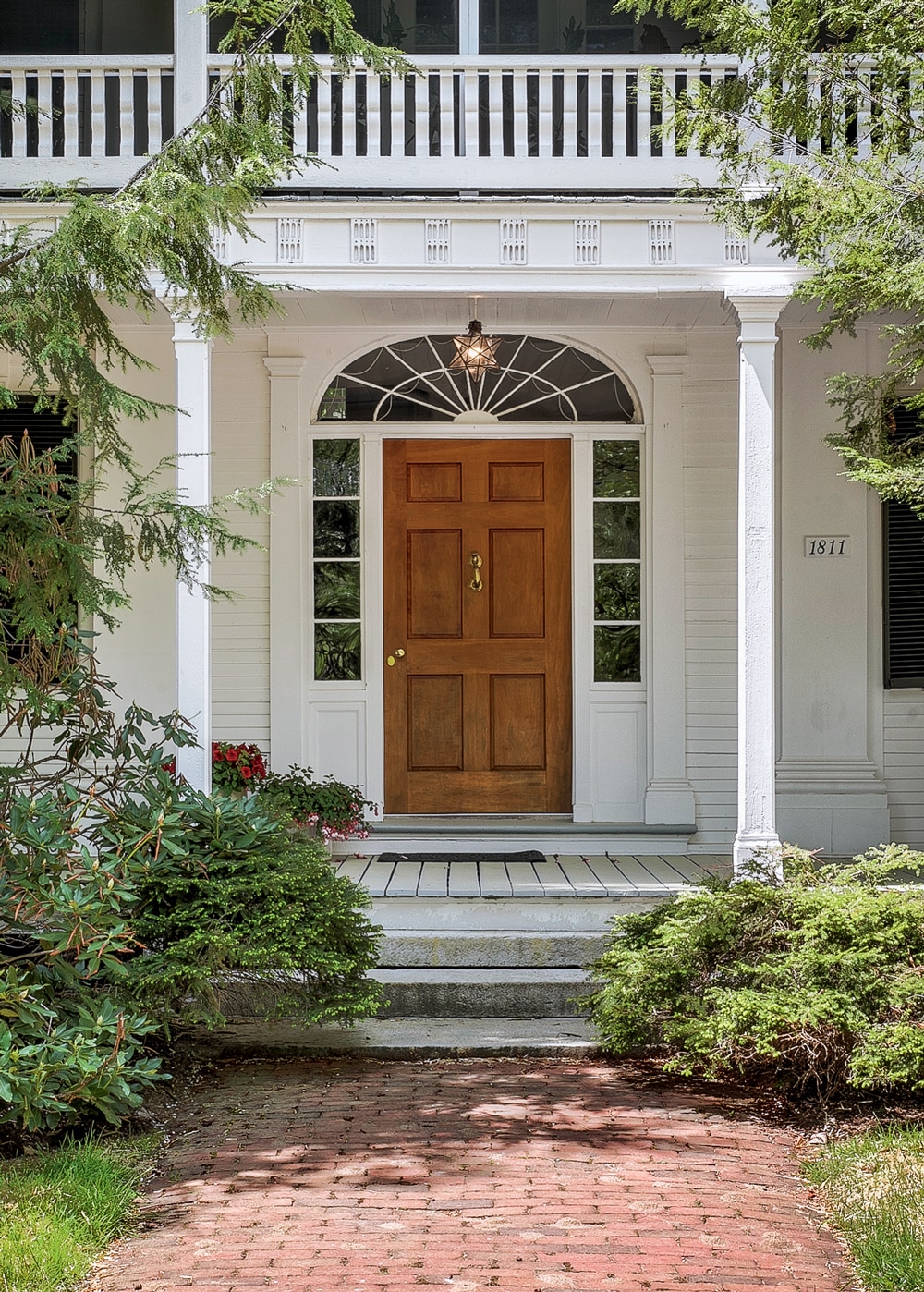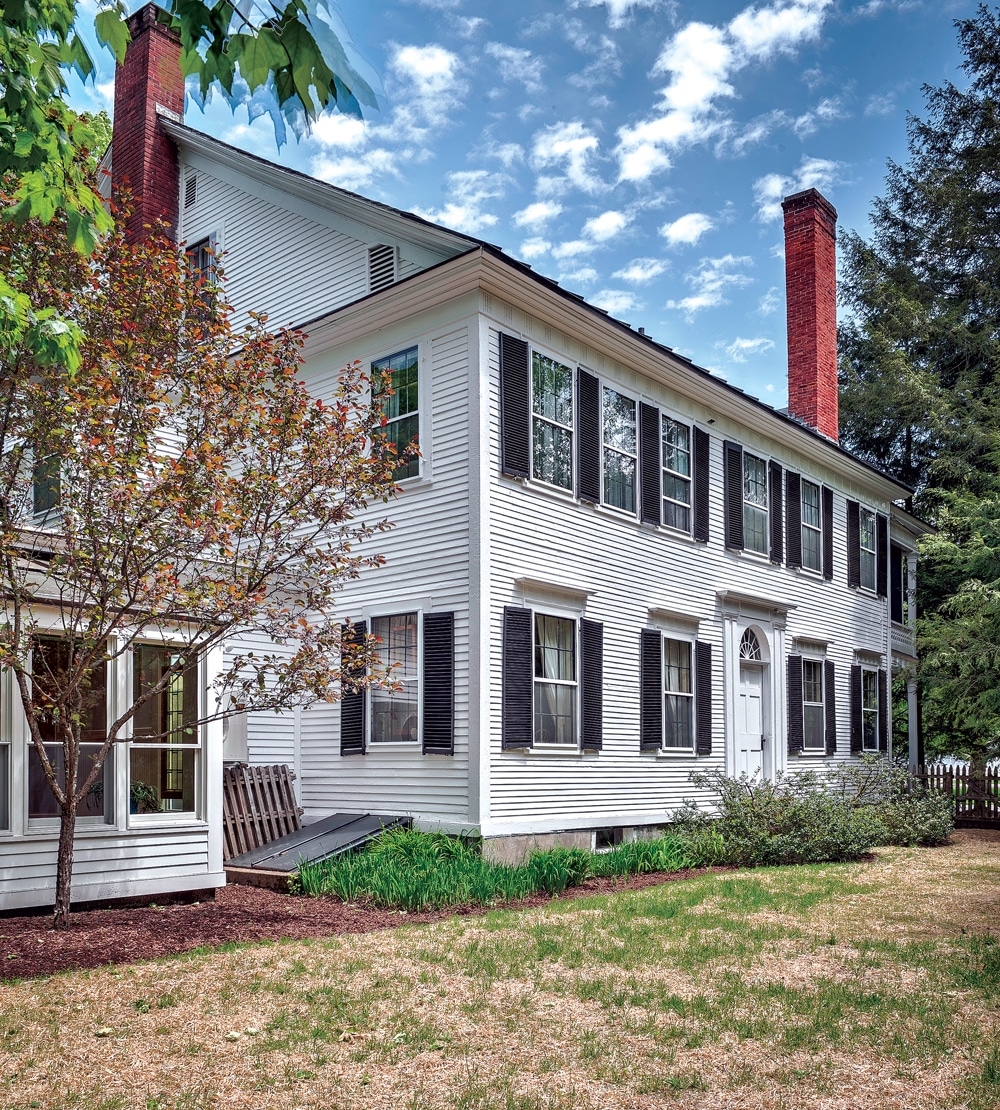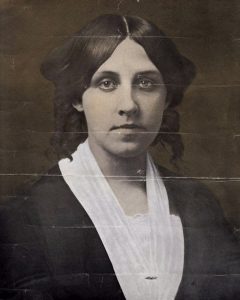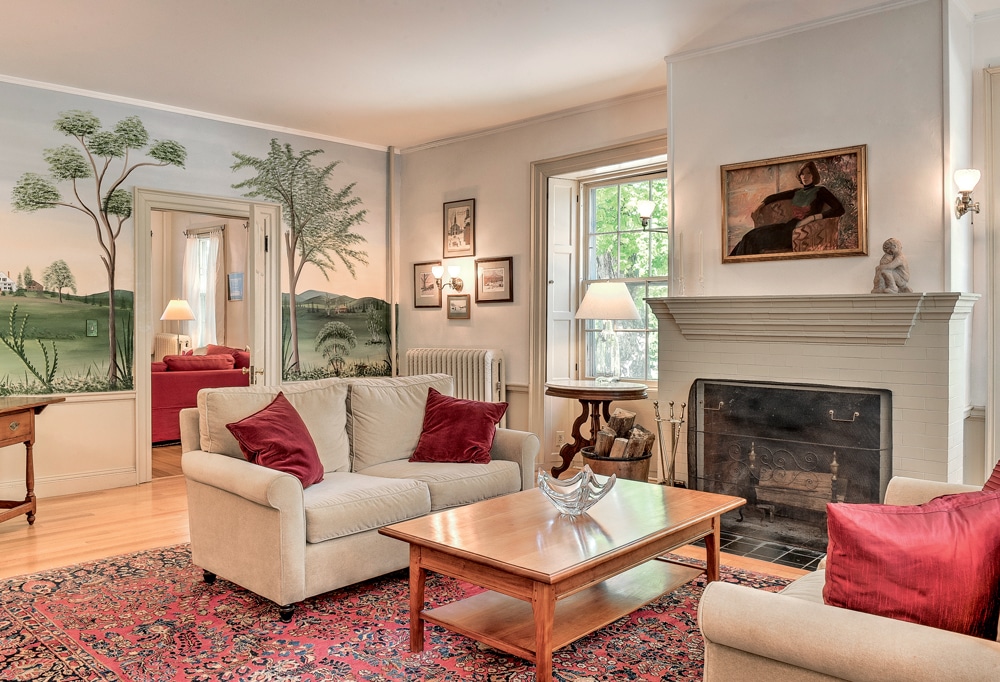Intellectual Property | House for Sale
A New Hampshire house where novelist James Michener found inspiration and where Louisa May Alcott once performed is ready for its next chapter.

A private residence when the Alcotts lived nearby, and a country inn when James Michener visited, this Federal-style mansion sits in the heart of Walpole, New Hampshire, the town that filmmaker Ken Burns calls home.
Photo Credit : Lee PorterIn 1974, John and Barbara Fraunfelder were young doctors with a 2-year-old daughter when John was recruited by Cheshire Medical Center in Keene, New Hampshire. “We had been living in Philadelphia, and we came to explore the area,” Barbara recalls. “The Realtor showed us everything within a 25-mile radius, and nothing felt right.” Then they were brought to 50 Elm Street, on the town common in nearby Walpole.
“We looked at it and laughed,” she says. “It was much bigger than what we thought we were looking for, and it needed a lot of work. But we fell in love with it.”
The 1811 Federal-style home was built by David Stone, who had made his money in the fur business. A local doctor named Jesseniah Kittredge bought the house in 1830 and raised his family there. Then in 1868, the property became Mrs. Wright’s Boarding House, which would evolve into the Elmwood Inn. After it changed hands yet again in 1930, it became the Old Colony Inn.

Photo Credit : Lee Porter
Today there are reminders throughout the house of its past as an inn, not least of which are the nine bedrooms and seven bathrooms. “It was great as our family grew, and fantastic for gatherings,” Barbara says with a laugh, “but my kids never learned to share a bathroom.”

As I explore the house, I’m most eager to see the third floor, where some imagination is required to envision how the space would have looked before it was divvied up into bedrooms. But these wide pine floorboards are likely the same ones that Louisa May Alcott trod back in 1855, when she delighted townspeople with a cavalcade of malapropisms in a production of Richard Sheridan’s comedy of manners The Rivals.
The Alcott family spent three years in the 1850s in Walpole, where Louisa’s father, Bronson, had been offered a place to stay by his brother-in-law, Benjamin Willis. (Willis had been married to Louisa’s aunt Eliza, who passed away in 1822.)
When Louisa moved to Walpole, she was 23 and had already published her first book, Flower Fables. She and her three sisters quickly became involved with the Walpole Amateur Dramatic Company. That summer, Kittredge offered the company his unfinished attic as a rehearsal and performance space.
The troupe performed The Rivals here, with Louisa in the role of Mrs. Malaprops, and the performance was so well received by the capacity audience (somewhere between 100 and 200, depending on the account, although both numbers are hard to conceive as I imagine the wall-less space) that work immediately began on The Jacobite and The Two Bonneycastles, which were presented as a double bill that September.
Fictionalized versions of events from the Alcotts’ time in Walpole would figure prominently in Louisa’s classic 1868 novel, Little Women. During the winter of 1856, Louisa would venture to Boston, where she could get work and make connections to advance her career. But her family stayed on in Walpole, and local resident Dr. Henry Bellows loaned Louisa’s younger sister Lizzie a piano to use, inspiring a pivotal life event for Little Women’s Beth. (Today the piano is on display in the Main Street headquarters of the Walpole Historical Society.) That same winter was when both of the youngest sisters, Lizzie and May, contracted scarlet fever. May soon recovered, but Lizzie’s illness lingered and eventually proved fatal, just as Beth’s did in Little Women.

Photo Credit : Lee Porter
About 100 years after those summers of third-floor performances, the house had another brush with literary greatness, one that inspires me to stop at a second-floor window and admire the view. In his best-selling 1959 novel, Hawaii, James Michener sets several scenes in Walpole, which he uses as the hometown for one of his central families. Michener had come to stay in the Old Colony Inn back in the 1930s. In a 1969 letter to Walpole librarian Anita Aldrich, Michener described Walpole as “one of the most beautiful villages in the United States” and remembered that it was the view of the parsonage across the square from this window that inspired the residence of Michener’s Bromley clan.
Also on the second floor, where five bedrooms and four baths surround the center hall and staircase, is an expansive but comfortable screened porch that peeks at the common from behind a pair of spruces.
My descent to the first floor brings me back to the grand entry hall, which gives way to a formal living room with an inviting fireplace, original Indian shutters, and an original wall mural. Painted by local artist Dutchie Perron in the style of Rufus Porter, the mural depicts a scene of the house that is personal to the Fraunfelders, whose daughter Kate rode to the house in a horse-drawn carriage for her wedding reception. “We understand that the painting won’t have the same meaning for new owners that it has for us,” Barbara admits, “but we’d love to think that they might keep it.”
After nearly half a century here, the Fraunfelders see memories everywhere. While leaving is difficult, with their three children grown, the house now is too large. Family gatherings are among their fondest recollections. “Christmases have been wonderful, with the whole house decorated and every room filled,” Barbara says. “Our grandkids refer to this as the Christmas house.”
Theirs is a house of many tales, but the Fraunfelders hope that the new owners will value it for its future, not just its past. “It has been such a beautiful place to live,” Barbara says. “My hope is that the new owner will be someone who really loves it, whose heart is really in it. This is a house that should be used and loved.” —Joe Bills
The house is listed at $924,900. Contact Sheila Lennon at 603-903-3320 (slennon@remax-keene-nh.com) or Norma Couture at 603-209-4918 (norma@normacouture.com) at RE/MAX Town & Country.
Yankee likes to mosey around and see, out of editorial curiosity, what you can turn up when you go house hunting. We have no stake in the sale whatsoever and would decline it if offered.
Joe Bills
Associate Editor Joe Bills is Yankee’s fact-checker, query reader and the writer of several recurring departments. When he is not at Yankee, he is the co-owner of Escape Hatch Books in Jaffrey, NH.
More by Joe Bills

